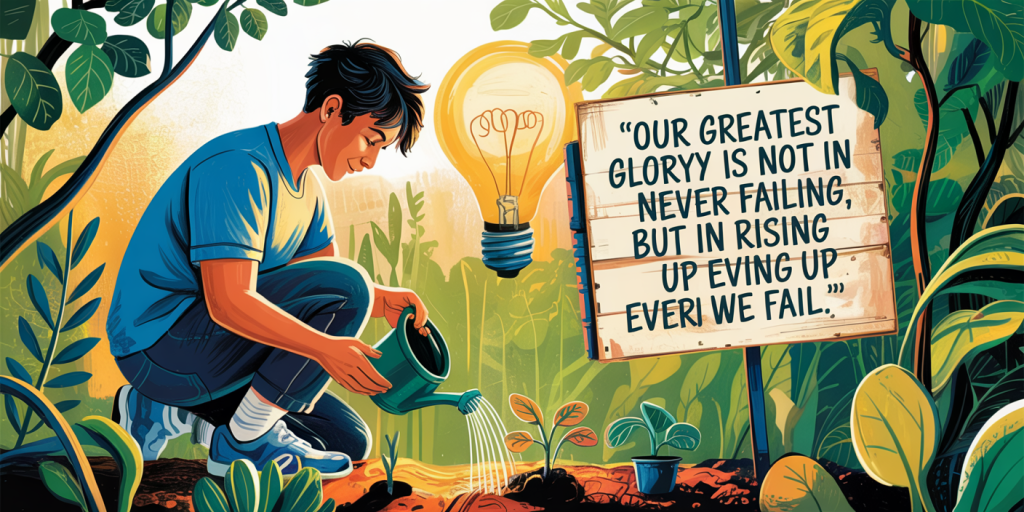How to Build Mental Toughness to Achieve Big Goals
Achieving significant goals requires more than just skills or strategy; it demands mental toughness—a resilient mindset that enables individuals to persist, adapt, and thrive despite challenges. Mental toughness is often what separates those who reach remarkable heights from those who falter under pressure. Understanding how to cultivate this mental resilience is vital for success in personal endeavors, professional careers, and athletic pursuits.
Mental toughness influences our ability to manage fear, stress, and setbacks while maintaining focus on long-term objectives. For example, elite athletes like Serena Williams and entrepreneurs such as Elon Musk often credit their mental toughness for overcoming failures and sustaining motivation. This article explores practical steps and strategies to build mental toughness, backed by real-life examples and data, to help you achieve your biggest aspirations.
The Science Behind Mental Toughness
Mental toughness is a psychological edge that allows people to cope better than opponents with the demands of sport, business, or life in general. According to a study published in the *Journal of Sport Psychology*, mentally tough individuals demonstrate increased confidence, control, and commitment under pressure (Gucciardi et al., 2015). Neuroscientific research also indicates that mental toughness correlates with enhanced activity in brain regions responsible for emotional regulation, decision-making, and stress resilience.
One fascinating case is that of Navy SEALs, known for their unparalleled mental toughness. The U.S. Navy SEAL training program boasts a dropout rate of more than 70%, primarily due to the intense physical and psychological challenges trainees face. Those who succeed develop exceptional mental endurance, adaptability, and focus. Their success supports the notion that mental toughness is both a skill to be trained and a byproduct of exposure to controlled adversity.

Developing a Growth Mindset: The Foundation for Resilience
A growth mindset—a term popularized by psychologist Carol Dweck—is the belief that abilities and intelligence can be developed through dedication and hard work. This mindset contrasts with a fixed mindset, which assumes that talents are innate and unchangeable. The growth mindset forms the cornerstone of mental toughness by enabling individuals to view setbacks as learning opportunities rather than obstacles.
Consider the example of Thomas Edison, whose persistence ultimately led to the invention of the practical lightbulb after thousands of failed attempts. Edison famously said, “I have not failed. I’ve just found 10,000 ways that won’t work.” This unwavering belief in personal growth allowed him to persevere where others might have given up. Cultivating a growth mindset can be as simple as reframing negative experiences, seeking constructive feedback, and embracing challenges.

Practical Strategies to Build Mental Toughness
Building mental toughness requires consistent practice and behavioral changes. Below are effective strategies backed by research and real-life application:
1. Controlled Exposure to Stressful Situations
Gradual exposure to stress can build tolerance and resilience. For example, performers like actors and public speakers often rehearse under simulated high-pressure environments to reduce anxiety during actual events. Similarly, athletes use pressure training to replicate competitive atmospheres.
Table 1 below compares the effects of controlled stress exposure versus avoidance on mental toughness:
| Approach | Description | Outcome |
|---|---|---|
| Controlled Exposure | Gradual, planned encounters with stressors | Increased resilience, better coping mechanisms |
| Stress Avoidance | Avoiding challenging situations | Reduced stress tolerance, increased anxiety |
This method enhances neural adaptability and stress regulation, as evidenced by research in cognitive behavioral therapy (CBT) methodologies.
2. Goal Setting with Incremental Milestones
Large goals can be overwhelming unless broken down into manageable steps. This approach sustains motivation and provides continuous feedback, essential for mental toughness.
For instance, J.K. Rowling faced multiple rejections before publishing *Harry Potter*. She set daily writing goals, which made her daunting objective achievable. Incremental progress boosts self-efficacy, an important trait in mentally tough individuals.
3. Mindfulness and Emotional Regulation Techniques
Mindfulness practices, including meditation and breathing exercises, help enhance emotional regulation—a key component of mental toughness. Studies have shown that mindfulness training reduces cortisol levels, a stress hormone, and improves attention control.

Professional basketball player LeBron James incorporates mindfulness into his routine, crediting it with improved game focus and stress management. Regular mindfulness exercises ensure clearer thinking during high-stakes moments.
The Role of Social Support and Accountability
Mental toughness does not mean going it alone. Strong support networks offer encouragement, advice, and motivation. A 2018 study published in *Psychology of Sport and Exercise* highlights that athletes with robust social support systems exhibit greater psychological resilience.
Mentorship is a powerful form of social support. For example, Steve Jobs mentored numerous Apple employees, fostering environments that encouraged innovation and persistence under pressure. Accountability partners or coaches can help keep you committed to your goals, reinforcing behaviors essential for mental toughness.
Measuring Progress and Adjusting Strategies
Tracking progress towards your goals is critical to maintaining mental toughness. Keeping a journal or digital log of your achievements, setbacks, and emotional states can provide invaluable insights over time. Data from self-monitoring also aids in identifying patterns that either fuel or hinder your mindset’s resilience.
A comparative table of mental toughness indicators over time can help visualize improvements:
| Indicator | Initial Assessment | After 3 Months of Practice | After 6 Months of Practice |
|---|---|---|---|
| Stress Tolerance | Low | Moderate | High |
| Emotional Control | Variable | Consistent | Highly Improved |
| Focus under Pressure | Distracted | Sharpened | Laser-Sharp |
| Commit to Goals | Unsteady | Steady | Relentless |
Adjusting training approaches based on such data ensures continuous growth and helps avoid burnout or stagnation.
Future Perspectives: The Evolving Science of Mental Toughness
The domain of mental toughness is rapidly evolving with advances in neuroscience, psychology, and technology. Emerging research is focused on genetic factors influencing resilience, neuromodulation techniques (e.g., transcranial magnetic stimulation), and digital tools like virtual reality to simulate stressful conditions safely.
Artificial intelligence is also paving the way for personalized mental toughness coaching, adapting strategies based on real-time biometric data such as heart rate variability and brainwave patterns. These innovations hint at a future where building mental toughness could become more accessible, efficient, and tailored to individual needs.
Moreover, cultural shifts emphasizing mental health and emotional well-being are reshaping how we perceive toughness—not as stoicism or emotional suppression but as adaptive psychological flexibility. This broader understanding supports sustainable resilience necessary for achieving increasingly complex, global challenges.
—
Building mental toughness is an ongoing journey that blends mindset shifts, strategic practices, and support structures. By embracing challenges, regulating emotions, and committing to incremental progress, any individual can enhance their mental resilience and powerfully pursue their biggest goals. As research and technology progress, our ability to cultivate mental toughness will continue to expand, presenting exciting opportunities for personal and professional growth.
